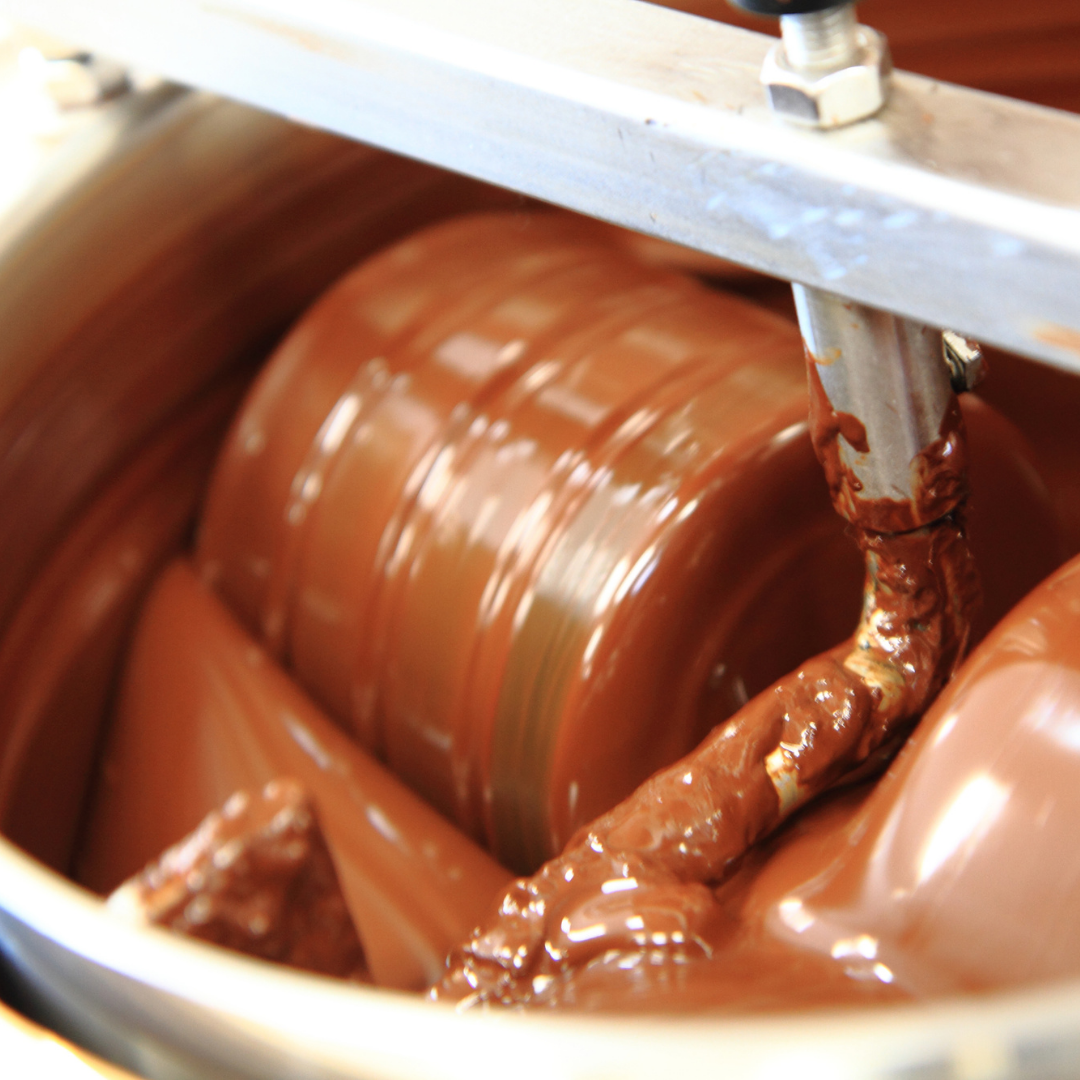
Our Passion
4 Scary Truths About Chocolate
If you’re like most people, you love chocolate. And like most people, you might not have given much thought to everything that goes into making it.
Over the past few years, consumers have started paying more attention to food supply chains and the impacts of our choices. Where does the food we’re eating come from? How are the products we’re purchasing manufactured and sold? What is the impact on the earth and societies? The dollars we spend are essentially a vote for the business practices that create a product, so it’s important to choose wisely.
One area that’s gained a lot of attention recently is the chocolate industry. Consumption of the delicious treat has gone up during the pandemic—and with good reason. Chocolate is comforting, indulgent, and full of stress-relieving antioxidants. Once a decadent luxury reserved only for the elite, chocolate is now a go-to treat for the masses.
But what goes into making that chocolate you love? You’ve probably considered the importance of buying organic fruits and vegetables, but do you know the difference between picking up a bag of sustainable dark chocolate versus a cheap candy bar? The type of chocolate you purchase matters more than you might think.
Choosing sustainable dark chocolate is not only a healthy choice, but it can also make a significant impact on our world. Here’s a breakdown of four pressing issues in the chocolate industry—and how you can make a difference by purchasing sustainable dark chocolate like Bibamba.
1: Environmental impact

Rising global temperatures and shifting weather patterns reduce the land where farmers can grow cacao. Cacao farmers often cut down trees to make more room for planting crops, but this deforestation drives further climate change, damages soil, and harms the crops themselves, which rely on shade to thrive.
Changing this cycle starts with valuing biodiversity and natural food sources. Bibamba prioritizes sustainability and applies the best agricultural and processing practices each step of the way.
In the earliest days, we hired an agronomist to work alongside our farm supervisor to manage the preparation of the land using an agroforestry system. Whereas other farms cut down trees, we strategically planted thousands of plantain, mango, and avocado trees to optimize the benefits of biological interactions. The trees increase biodiversity, control soil erosion, provide natural shade for delicate cocoa crops, and repel pests so that our crops can thrive without chemicals or anti-pesticides. (Fun fact: The plantains from our trees are also a key ingredient in our Sweet Plantain Crisp, allowing customers to enjoy an innovative product and an authentic taste you can’t find elsewhere.)
2: Poverty & inequality

Chocolate is a multi-billion dollar industry—and yet most of the farmers who grow the cocoa required to make chocolate are living in poverty. Many make less than $1 a day performing what can often be grueling work. As Nicolas Lambert, director of Fairtrade Belgium, noted, “A lot of value is created in the chocolate chain, but it's clearly not being distributed equally."
The picture is sadly nothing new: African cultures living in poverty while America and other wealthy nations enjoy the fruits of their labor. The low wages of cacao farmers creates another dangerous cycle, as younger generations turn away from agriculture as a profession. After seeing the hard work that has gone into their family farms and the low yields it produces, many young people simply don’t view farming as a profitable endeavor. This creates a new risk of cacao farms dying out after the older generations pass on. “If we want to keep eating chocolate in the future, we need to pay farmers a higher price for their cocoa beans,” Lambert said.
And yet, there is hope. Change starts with paying farmers a fair wage for their work. Bibamba has made this a priority since day one. We pay all our farmers a fair wage and provide healthcare so they can feed their families, care for themselves, and teach future generations to thrive. We also created a paid internship program that brought students to our farm and enabled them to learn sustainable farming methods so they can help improve agriculture throughout the region.
It all goes toward serving one of our highest business goals: to enrich Cameroonian lives and help raise its people out of poverty.
3: Child labor
Child labor is prohibited by Cameroonian law, but many cacao farms rely on it just to make ends meet. Young children often miss school to work on farms, often using sharp machetes, handling pesticides and chemicals, and working in other dangerous conditions. Although the big brand names in chocolate pledged to end child labor years ago, a recent report found that it has actually increased 14% as the demand for chocolate has gone up.
Bibamba takes a firm stand against child labor and never employs children on our farm. Our vision is to make sure our chocolate works for everybody—which means that as we grow, we want to ensure our farm employees have a house and can provide food for their children and send them to school. The next generation should get the same opportunities in Cameroon they would in the United States.
4: Future of chocolate
It’s scary to imagine, but it’s possible that our favorite treat could become extinct. Or, at least, that it could become an expensive luxury reserved once again for the wealthiest elite. Several studies have found that we could see a world chocolate shortage arise in the next several years, mainly because of climate change. The risk is heightened by future generations uninterested in carrying on their family’s cacao farms because of the low wages they face.
So how can we prevent a future without the joy of chocolate? It starts by making informed purchase decisions today.
YOU are helping to make a difference
When you purchase Bibamba chocolate, you are doing more than enjoying a delicious treat. You are helping raise the standards of the chocolate industry. Bibamba is committed to sustainable and ethical practices on our farm in Cameroon, and supporting local suppliers and businesses in Colorado.
Thank you for helping us make a difference...one bag at a time.
Blog written by: Suzanne Strobel







